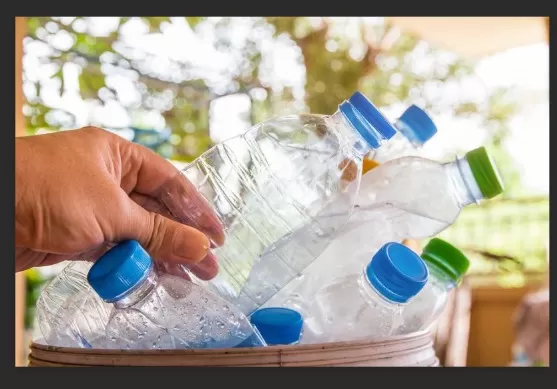8 Reasons to Ditch Plastic in Your Kitchen (Part 1). The inception of plastics in the 1860s marked a revolutionary moment in human history. Initially hailed as remarkable substitutes for natural materials like ivory and tortoiseshell, these synthetic wonders held great promise. Celluloid, introduced in 1869, was even celebrated as “the savior of the elephant and the tortoise,” as it alleviated the demand for those endangered species’ products.
However, as we fast-forward to the present day, our perception of plastics has undergone a significant transformation. While plastics undeniably offer unparalleled convenience and versatility, they are increasingly recognized as a mounting threat to both human health and the environment.
Reduce Plastic Waste with Reusable Bags

The staggering consumption of plastic bags worldwide is a concerning environmental issue.
More than 2 million plastic bags are used every minute, and despite their brief usefulness (an average of just 15 minutes), these bags can have a lasting negative impact on the planet. Petroleum-based plastics, commonly used in bags, can take decades to decompose, if they ever do.
To contribute to a healthier planet and reduce plastic waste, consider adopting the use of reusable shopping bags.
By keeping a few reusable bags in the trunk of your car or even in a small purse, you can always have them on hand when you go grocery shopping or run errands. Many reusable shopping bags are designed to fold up compactly, making them convenient to carry and use.
This simple switch from disposable plastic bags to reusable ones not only helps minimize plastic pollution but also reduces clutter in your home, particularly under the sink.
It’s a small yet impactful step toward a more sustainable and environmentally friendly lifestyle.
Health Considerations: Switching to BPA-Free Alternatives
Bisphenol A (BPA), a chemical that has been widely used in plastic production for many years, has raised concerns among researchers regarding its potential health impacts.
Some studies suggest that BPA exposure may increase the risk of certain types of cancer and contribute to various other health issues. While some countries have already taken steps to ban or restrict the use of BPA in certain products, the U. S. Food and Drug Administration (FDA) has maintained that BPA is safe for humans when used in small amounts.
Given the ongoing debate and uncertainty surrounding the health effects of BPA, individuals who prefer to err on the side of caution may choose to switch to BPA-free alternatives, such as glass or metal containers.
These alternatives are considered safe and have the advantage of not leaching potentially harmful chemicals into food or beverages. Making the switch to BPA-free containers can provide peace of mind and help individuals reduce potential exposure to BPA, even if it’s in small amounts.
It’s a proactive step toward promoting personal health and well-being.
Enhancing the Dining Experience: Choose Ceramic or China

The choice of tableware can indeed impact the sensory experience of enjoying a meal or beverage.
The feel and smell of plastic can affect the taste and overall enjoyment of food and drink. When we eat, our senses of taste and smell work together to create a complete sensory experience, and strong plastic odors can interfere with this process.
Research from the University of Michigan has shown that even the tactile sensation of plastic tableware can negatively influence some people’s enjoyment of their meal.
To ensure a more pleasant breakfast, lunch, or dinner experience, it’s advisable to opt for ceramic or china plates and metal flatware. These materials are less likely to introduce unwanted odors or sensations that could detract from the enjoyment of your food and beverages, allowing you to savor your meals more fully.
Minimize Risks: Avoid Microwaving Food in Plastic Containers
Harvard Health Publishing highlights that while microwaving plastic may not pose an immediate deadly risk, the combination of heat and plastic can lead to potential concerns.
Plasticizers, such as BPA and phthalates, may have the ability to leach into food when exposed to heat.
To minimize the risk of contamination from these additives, it is advisable to avoid microwaving food in plastic containers, especially when it comes to items like meat, cheese, or other fatty foods.
These types of foods are more likely to absorb toxins from plastic, potentially leading to exposure to harmful substances. Instead, opt for microwave-safe glass or ceramic containers for heating food in the microwave.
By taking this precaution, you can reduce the potential risks associated with plastic and heat interaction and maintain the safety of your meals.
Avoid Bacterial Contamination: Use Stainless Steel Water Bottles

It’s essential to be aware of the potential for bacterial contamination in reusable water bottles.
Research has shown that plastic water bottles can harbor more bacteria than some might expect, which can raise concerns about hygiene and health.
To minimize the risk of bacterial growth and contamination, it is recommended not to reuse plastic water bottles.
A better alternative is to switch to stainless steel water bottles, which are less hospitable to bacteria. While stainless steel bottles still require regular cleaning, they are generally considered a safer and more hygienic option for carrying and consuming water.
By making this switch, you can maintain better control over the cleanliness and safety of your water bottles.
*The information is for reference only.